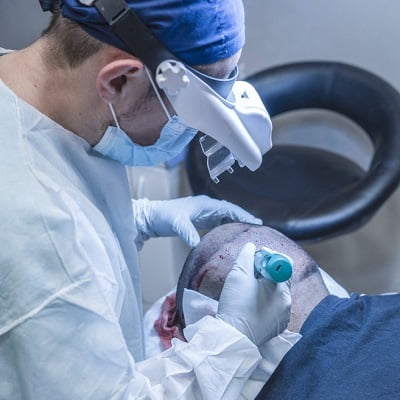
Making the big decision to have a hair transplant to recover their entire head of hair is something that many people do to improve their appearance and increase their self-confidence. Even though hair transplants in Islamabad are becoming increasingly popular, some recipients may have itchy scalps after the treatment.
In this blog, we will delve into the reasons behind this itching sensation, how common it is, and explore effective remedies to alleviate discomfort during the post-transplant period.
The Healing Process:
A hair transplant is a surgical procedure that involves the extraction of hair follicles from a donor area (usually the back of the scalp) and their transplantation to areas with thinning or no hair. As with any surgical intervention, the body goes through a natural healing process, and the scalp is no exception. Understanding that itching is a standard part of the healing journey is crucial.
Post-transplant itching typically occurs within a few days to a few weeks after the procedure. This can be attributed to the body’s response to the small incisions made during the transplant and the natural healing of the scalp tissue. The itching sensation is usually temporary and tends to subside as the healing progresses.
Causes of Itchy Scalp After a Hair Transplant:
Healing of Incisions:
The small incisions made in the scalp during the transplant can trigger the release of histamines, chemicals the body produces in response to injury. Histamines play a role in the healing process but can also cause itching.
New Hair Growth:
As the transplanted hair follicles settle into their new environment and grow, the surrounding tissue may experience some irritation. This can contribute to an itching sensation.
Drying of the Scalp:
Post-transplant care often involves special shampoos and topical solutions to aid healing. Combined with the natural healing process, these products may lead to scalp dryness, causing itching.
Nerve Regeneration:
The healing process involves nerve regeneration, which can result in sensations like tingling or itching. As the nerves reconnect and adapt to the changes, temporary discomfort may be experienced.
How Common is Post-Transplant Itching?
An itchy scalp following a hair transplant is common, and most individuals will experience some level of itching during the recovery phase. However, the severity and duration of itching can vary from person to person. Factors such as individual pain thresholds, the specific technique used during the transplant, and post-operative care routines can influence the intensity of itching.
It’s important for individuals undergoing a hair transplant to communicate openly with their surgeon about any concerns or discomfort they may be experiencing. Surgeons are well-versed in the post-transplant healing process and can guide managing itching and ensuring a smooth recovery.
Managing and Alleviating Itching:
Follow Post-Transplant Care Instructions:
Adhering to the post-transplant care instructions provided by your surgeon is crucial for a successful recovery. This may include specific shampoos, topical solutions, and other recommendations to promote healing and reduce itching.
Gentle Washing and Patting:
When washing your hair during the recovery period, use a gentle touch. Avoid vigorous rubbing or scratching, as this can exacerbate itching. Instead, pat your scalp dry with a soft towel.
Avoiding Hot Water:
Hot water can strip the scalp of natural oils, leading to dryness and increased itching. Use lukewarm or cool water when washing your hair, and avoid hot showers.
Stay Hydrated:
Drinking adequate water is essential for overall health and can contribute to skin hydration. Well-hydrated skin is less prone to dryness and itching.
Topical Remedies:
Some individuals find relief from itching by using prescribed or over-the-counter topical solutions recommended by their surgeon. These may include soothing creams or ointments specifically designed for post-transplant care.
Over-the-Counter Antihistamines:
If itching persists and becomes bothersome, over-the-counter antihistamines may be considered under the guidance of a healthcare professional. These medications can help alleviate histamine-induced itching.
Avoid Scratching:
While it may be tempting to scratch the itchy areas, doing so can disrupt the healing process and increase the risk of infection. Instead, gently pat or massage the scalp to provide relief.
Patience is Key:
Recognize that itching is a temporary phase in the healing process. Patience is crucial, and as the scalp heals and the transplanted hair follicles settle, the itching should gradually subside.
All Summed Up!
Experiencing an itchy scalp following a hair transplant is a common and temporary aspect of the healing process. At SKN Cosmetic Clinic Islamabad, understanding the causes of itching and following proper post-transplant care instructions are essential for a smooth recovery. While itching can be bothersome, it is a natural part of the body’s response to the surgical procedure.
Effective management involves a combination of gentle care, hydration, and, if necessary, guidance from healthcare professionals. By staying patient and committed to post-transplant care routines, individuals can look forward to enjoying the results of their hair transplant with a healthy and itch-free scalp in the long run.









